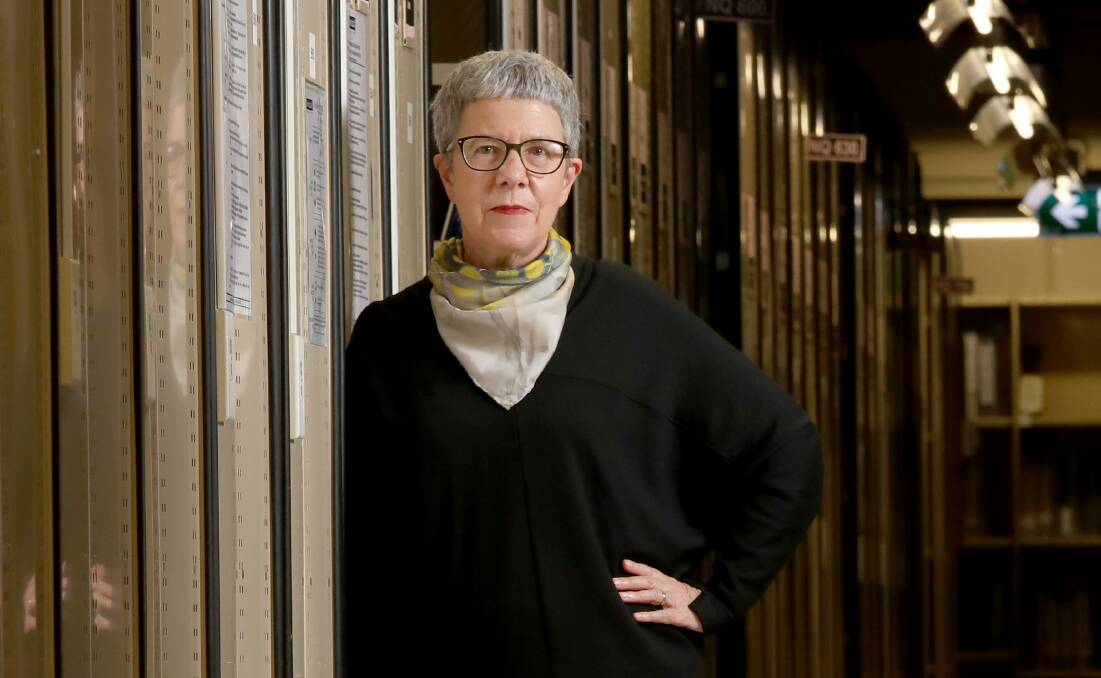
Much as I would love to blame everything on the last three years of Coalition misrule, there is far too much cruelty and stupidity to go around to blame it entirely on one party.
Here we are, approaching 2023, and our collective culture, history, identity, memory, is about to end up on the scrapheap unless we do something about it immediately. Urgently.
While I am totally loving that both the Prime Minister Anthony Albanese and the Minister for the Arts Tony Burke were up in Woodford (one of my all time favourite festivals because I am old and love talks nearly as much as I love bands) which shows a commitment to the arts, I'd be more thrilled if while they were both up there, details of the new national cultural policy had been released. In detail.
Instead, we will have to wait until January 30 to get the entire vibe. And more importantly than the vibe, the actual injection of funds. While we wait, our national identity slowly disappears. As Macquarie University's Michelle Arrow and ANU's Frank Bongiorno wrote: "As the tide washes out on the Abbott-Turnbull-Morrison era, it is clear that the real history war is the long war on our libraries and archives. Its full effects are only now hitting home."
Canberra is the repository of so much that is good and great in this country.
Some politicians, a lot of excellent public servants and even more importantly, our extraordinary cultural institutions yet right now our cultural institutions are at terrible risk, with the exception of the Australian War Memorial, so idolised by the Coalition, money was poured into it at a cost to other institutions.
There is, we are told time and time again, only so much money to go around.
I remember back in 1998, when the then director of the National Gallery of Australia, Brian Kennedy, announced entry fees for everything, bar blockbusters, would be abolished.
On top of that, the gallery would be authorised to make purchases up to $10 million without ministerial approval.
The previous threshold had been $450,000. It was a huge deal and it happened during a Coalition government.
So it turns out that the problems with the funding of our national cultural institutions have been constructed by both parties, says Michelle Arrow, historian at Macquarie Uni.
Labor's "efficiency dividends" in 1987 changed the foundations on which our cultural institutions were built. Suddenly our galleries, museums, libraries, were in competition. Suddenly they had to make hard decisions about what to preserve.
As Adrian Vickers wrote in these pages just a month ago, efficiency dividends shrunk budgets, and made people do more with less money each year. "The reward for the institutions has been to get even less the next year as part of a 'dividend' (I'm not sure who to) ... in the next year, the National Library's budget will fall by 21 per cent on its 2022 level."
There is one part of all this mayhem that needs urgent attention and it's the national treasure Trove. Mike Jones, an archivist, historian, and postdoc at ANU, describes it as a focused search engine: libraries, research collections, museums, research projects from all around the country. It has a focus on the history, culture, community, and society of Australia.
It's a national resource and asset and costs somewhere between $4 million and $10 million.
And sure, it helps researchers across the country and that's vital. But it also helps ordinary Australians find their families, discover people they thought they'd lost, understand who they are and where they came from.
READ MORE:
Jones himself was previously involved with the extraordinary Find And Connect, containing history and information about Australian orphanages, children's home and other institutions. And that all sits in Trove, along with countless other resources, waiting for someone searching for their lost family or details of their own life story.
Without Trove, the cost of research goes up.
"But it's not just research infrastructure, Trove is also a public good," says Jones.
The stories of people finding their families through Trove are many - but sometimes it's just a little more, something to fill in the cracks and the gaps, something to repair an ache or an absence.
James Ashburner, a retired statistician, is fifth generation Eureka. But on the other side, he couldn't reconcile the many contradictory stories his mother told him about his grandfather.
Trove told him the truth, that his grandfather died when his mother was 11, that he was unemployed and depressed. That he had cancer. And most importantly, that he was a professional musician. Ashburner took up the accordion seven years ago.
Think that's inconsequential? I would give a lot to know more about the circumstances of the murder of my grandparents during the Holocaust, more than I already know.
These stories, these memories, this knowledge, form our identity. Those of us who have access to those stories are so lucky. So so lucky.
Researcher Chrys Stevenson looks for details for her clients - she says one knew very little about her grandfather. Stevenson was able to reconstruct his entire life from birth to death using Trove.
"Because Trove reports on both triumphs and misdemeanours, I was able to get a real sense of his personality. I even found a humorous poem that someone had written about him and published in the newspaper. I suspect the history of this previously undocumented but important man will be included in her memoir."
One day, Albo, Burko, people will want to know much more about you. Your children, your grandchildren, they will be fortunate because you have lived such public lives. But ordinary Australians should have that opportunity too. It hurts not to know.
Please save Trove.
- Jenna Price is a visiting fellow at the Australian National University and a regular columnist.


